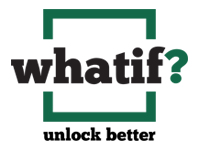
Meaningful work, relationships, recognition, and the people experience
What if we had more open and meaningful conversations with each other on what makes a meaningful experience?
oday’s leaders face myriad challenges with “the one thing” rising to the top of their agenda as their signature issue. During the pandemic, issues from employee safety to virtual work environments, to customer fulfillment, to supply chain vulnerability competed for the signatory spot. It was a formidable challenge keeping all these plates spinning simultaneously.
As we come out on the other side of the pandemic, the signature issue most leaders I speak with have in common is talent. Specifically, attracting, engaging, and keeping top talent to be competitive in the post-pandemic operating environment. Virtually everyone I speak with expresses concern and frustration over losing key people they are tying to retain or hire, and the increasing costs of both. Though some say we are past its apex, the great resignation or great reshuffle is still present and real for many, and it’s painful.
Many have weighed in on the reasons for surge of people re-evaluating their employment circumstances and making change. My view has been it’s a rebalancing of labor supply and demand, the adoption of new more favorable habits, and a re-stacking of values and priorities – all fueled by remote work.
To test this thesis, I had conversations with leaders trying to hire talent to support new capabilities or business model changes, leaders trying to keep top performers in a hot labor market, people weighing new career opportunities against what they have in hand, and people who recently changed or made the decision to change jobs. To be clear, while my approach was not scientific and my sample size is not statistically significant, three key themes did arise from my conversations, coupled one surprising insight. People expressed these themes in their own words, I paraphrase them as meaningful work, meaningful relationships, and meaningful recognition. I originally thought of the third theme as meaningful compensation, but it was evident that while compensation is an important form of recognition, it’s much more than that.
Understanding that I am competing with time and attention, I’ll cover the highlights of my conversations.
Meaningful work is about contributing to, or better still, having an impact on something bigger than a job description. It’s the intersection of values and purpose. As more organizations express their purpose or intent, people I spoke with said there is a mismatch between what’s being said, and what is experienced. ESG, DEI, and leadership humility were key topics of concern for those considering a change or who made a change. The disconnect became more acute to people as they rethought what really matters during the pandemic. People also get meaning from challenge and growth. A great question to consider being, will the work stretch me and help me grow personally and professionally?
Meaningful relationships became more important in the absence of them. There is truth to the saying, absence makes the heart grow fonder. Making meaningful connections with colleagues, team members, customers, direct reports, and leadership matters. People want to be in an environment that allows them to be the best version of themselves. It also ties back to meaningful work and growing personally as well as professionally. As one senior executive put it, “I see being a developer of great talent as the legacy I want to have. Investing in people to help them develop the skills necessary for the future and become more resilient in the face of constant change and uncertainty. It’s become almost impossible to do this in the face of the business’s day-to-day demands in a virtual environment. They’re frustrated. I’m frustrated.”
Compensation, contribution, and caring sum up meaningful recognition. Will my contributions be appreciated, and will my impact be rewarded? This is an especially acute pain point for the women I spoke with. They tend to be less self-promoting, so their behind-the-scenes contributions, or unpaid work, often goes unrecognized. Compensation is seen as a form of value recognition. It’s also important to those in the wealth creation phase of their lives and careers. Creating economic security is top of mind. It was surprising and frustrating for many to learn that it took either job offers, or a job change, to get recognized for the value they bring to the table.
To sum it up, people want to play a key role in doing something meaningful. They want to be connected to a community or culture of growth and be recognized for the diverse ways they contribute individually and affect the whole. And they want to grow as people and professionals. What’s interesting is these themes were consistent across age, gender, race, and ethnicity.
A Gallup organization study found that people don’t quit jobs, they quit managers. If a rich experience is the intersection of meaningful work, relationships, and recognition, then the absence of it will motivate people to consider their options. Top talent has options. My sense today is people are quitting poor experiences.
Oh, and the surprising insight? It seems everyone is pitching the same story to each other’s talent. They are offering promotions, better compensation, and promising a stronger culture. Interestingly, a recent Inc. article suggests that 72% of people later regret resigning. It seems for many, the experience promised isn’t the experience experienced.
What if we had more open and meaningful conversations with each other on what makes a meaningful experience? What if we redoubled our efforts to create a more meaningful experience for our people? Would we then need to spend the time, energy, and expense to attract other’s talent? Or might we become more attractive to talent at large? After all, companies already do this with their customers, some even with suppliers. As Dorothy sagely put it, “There’s no place like home.”
As always, let me know your thoughts.


Leave a Reply